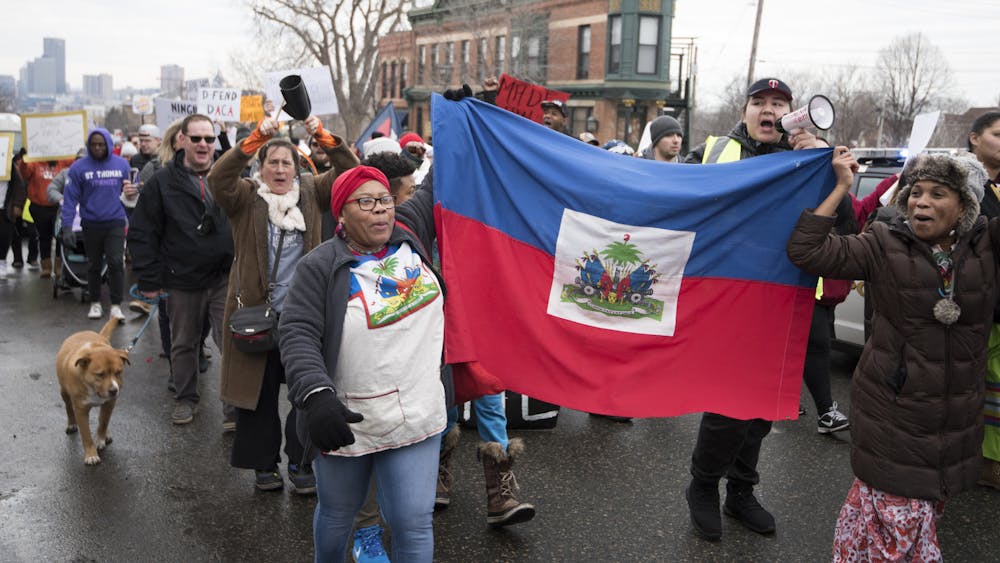Connor Carlin
Staff Writer
In another challenge for the Biden Administration’s migration policies, the US has started flying out migrants — most from Haiti — encamped in a Texas border town back to their native country. Around 2,324 migrants in 21 different flights have already been returned to Haiti, with more flights planned from San Antonio to Port-au-Prince and Cap-Haitien.
The Administration promised to deport many of the approximately 15,000 Haitian refugees who had camped themselves under a bridge in the border town of Del Rio, Texas, most having crossed the Rio Grande River from Ciudad Acuña, Mexico. The camp has now been entirely evacuated, with the vast majority of the migrants being admitted to the US to adjudicate their claims of refugee status. About 15 percent have accepted refuge in Mexico, according to Marcelo Ebrard, the Mexican foreign minister. Mexican officials have confirmed their own deportation plans, specifically to bus migrants from Ciudad Acuña to Monterey in northern Mexico and Tapachula in southern Mexico to fly them back to Haiti.
US border patrol closed off vehicle and pedestrian crossings between Ciudad Acuña and Del Rio on Sept. 17 to stop any further refugees entering, instead directing all travelers to a crossing point 55 miles away called Eagle Pass; with the Del Rio camp evacuated, they have announced a partial reopening of the Ciudad Acuña-Del Rio crossing as of Sept. 25. The refugees at Del Rio were reportedly facing over 100 degree heat and were without access to food or water, as US border officials scrambled to provide these necessities while keeping them from entering any further into the country. This expulsion operation is set to be among the quickest large-scale deportations of migrants by the US in decades.
Operating under a Trump Era public health policy known as Title 42, which was ostensibly meant to prevent Covid-19’s spread, the US has been turning most border-crossers away before they can apply for asylum. This policy has been criticized by public health officials such as Dr. Ronald Waldman, president of the human rights group Doctors of the World, for its xenophobic and “laughable line of reasoning” which frames migrants as a unique threat to public health above other groups such as students or businessespeople. While these experts have pushed for the policy to be revoked, the Biden Administration has defended its use as necessary for public safety. Only last week, Judge Emmet Sullivan of the US District Court of Columbia ruled that the policy could not be applied to families with young children, a decision which the Biden Administration is now appealing.
However, messaging on the border situation shifted recently after photos and videos from the Del Rio refugee camp began to surface of border patrol agents on horseback aggressively blocking migrants from crossing into the US, threatening them with whip-like cords to force the migrants to comply. Homeland Security Secretary Alejandro Mayorkas, in a reversal of his previously more sanguine tone on the subject, said that the images “horrified” him, and that the agents involved have been put on administrative duties while an investigation into their conduct is underway.
Democratic lawmakers have expressed outrage at these developments, and have called on the Biden Administration to halt the expulsions. Senate Majority Leader Chuck Schumer said in a floor speech that the government “cannot continue these hateful and xenophobic Trump policies that disregard our refugee laws.” Meanwhile, 50 House Democrats signed a letter to Mayorkas and Attorney General Xavier Becerra arguing that it will be years before the Haitian government will be capable of safely receiving its citizens.
This is not the first refugee crisis from the Caribbean nation. Following the 1991 military coup of Jean-Bertrand Aristide, Haiti’s first democratically elected president after the brutal military dictatorship of François & Jean-Claude Duvalier, approximately 38,000 refugees fled to the United States that year alone, more than the combined amount which came in the previous decade. The sudden exodus caused a political crisis for the Bush and Clinton Administrations over how to properly process and/or deport the overwhelming number of refugees. Though the crisis was concluded with the reinstatement of Aristide with US military support in 1994, Haitian migration has remained in a difficult situation due to economic, environmental and political instability within the country.
In recent years, there has been a large increase in the number of Haitian migrants and refugees to the US and Latin America stemming mostly from the earthquake the country suffered in 2010. In addition, after the conclusion of the 2016 Rio Olympics, thousands of Haitian workers in temporary Olympics-specific jobs became unemployed, and faced with such a sudden rapid job loss, began braving the deadly Panamanian jungle, the Darien gap, to make it to the United States. As such, many of the Haitian refugees now at the US border are thought to have been recently living in Central and South America.
This most recent spike in refugees is attributed to a combination of factors, including Haiti’s most recent devastating earthquake, the toll taken by Covid-19 on Central and South America, and the assassination of Haiti’s President Jovenel Moïse in July 2021. The refugees interviewed by CBS News, such as Fabricio Jean, a 38-year-old married father of two who arrived in Del Rio with his entire family, said that “in Haiti, there is no security,” and expressed anxiety over returning to a dangerous country they feel cannot protect them or their families.
Pushback against the Biden Administration’s policies has been swift and widespread, but it is yet to be seen how this will affect their approach to the situation going forward. Vice President Kamala Harris has publicly joined calls for an investigation of the border patrol agents incident, while the NAACP has demanded a personal meeting with President Biden over the refugee crisis.
NAACP President Derrick Johnson said on the subject “if we were to close our eyes and this was occurring under the Trump Administration, what would we do?”




